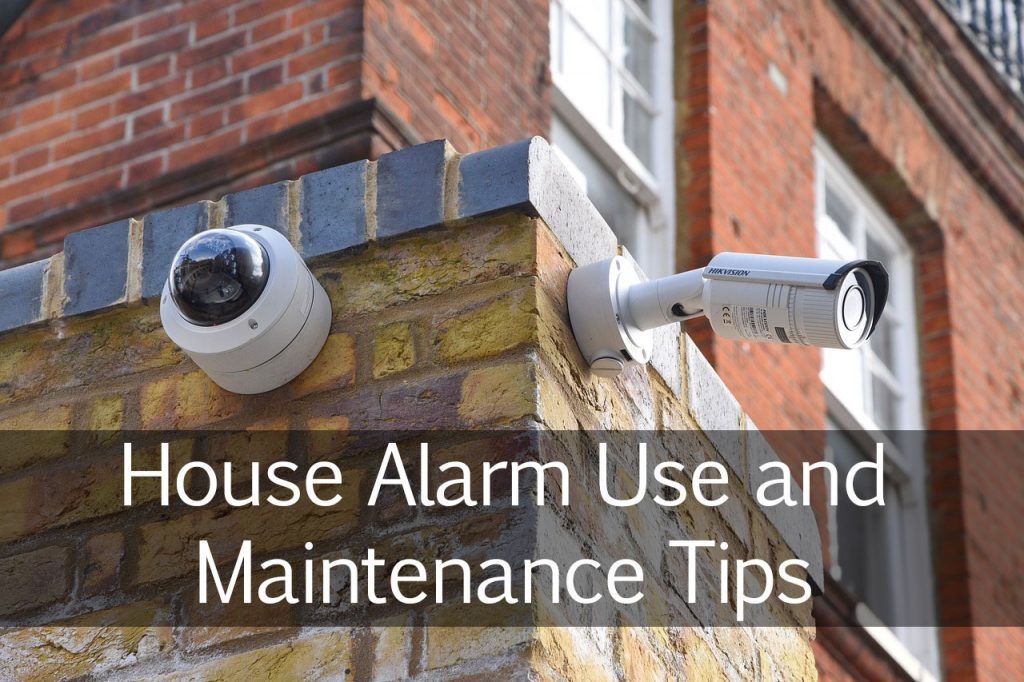Your house alarm is a powerful home defence tool if used properly. House alarms both protect your home when you are away and can be used as an early warning system when you are home. There are four simple rules to getting the best out of your house alarm:
- It must be in good working order.
- It must be checked frequently.
- House alarms connected to a response service are far more effective than a standalone system.
- The system must be designed and maintained in so that false alarms are eliminated.
House Alarm Maintenance Tips
- Test wireless sensor batteries: If you have a wireless system, check the batteries. This is important before you go away. Many systems will warn you when a battery in a sensor is running low on power.
- Clear foliage and vegetation: Clear foliage in the path of and around external sensors. This will ensure that the sensor is monitoring its full area and will eliminate false alarms, especially during windy weather.
- Test alarm signals: If connected to an alarm response provider its worth checking that they are receiving signals from your alarm. Periodically giving them and call and confirm that they have received your signal. Test your different signal types. Separately test panic buttons and sensors.
- Check your motion detectors: Inspect each motion detector and ensure that they are mounted correctly and not hanging loose. Remove dirt, debris and spiderwebs (this can be done with a vacuum cleaner). Its also important to note that insects have not invaded your sensors, ants are particularly good at doing this. If you find ants in the sensor, remove and open. Spray the inside of the detector with an insect spray.
- Check your detectors are working: Put your alarm on “Test” and activate each motion sensor and door contact.
- Check the backup battery: The system should have a backup battery that will keep the system running should your power go down. If the battery is old, or there are frequent power problems in your neighbourhood, the battery will probably need replacing.
- Schedule annual maintenance: If you have a service provider that maintains your alarm, schedule a maintenance visit. This is best done before you leave your home for a well-earned holiday.
Getting the Most Out of Your House Alarm
- Activate when not at home: Turn your alarm on every time you go out. Yes, even in the daytime. Burglaries often take place during the day when people are at work.
- Cover all the entrances: Cover all the possible entrances to your home with the alarm system. There should be a PIR (Passive Infrared Sensor) or door sensor in every room where there is a door or window that provides access to the outside world. The room without this protection is the weak link in your security chain.
- Use cellular technology: If you are upgrading or purchasing an alarm for the first time, make sure you purchase one that can link to an APP or sends messages and alerts to your cell phone. This is an important tool if you self-monitor your alarm. The phone will give you remote control of the system from anywhere in the world. It also enables you to monitor activity and call for help remotely.
- Close your doors and windows: When you go out, its important to get into the routine of closing doors and windows. Windows left open will allows curtains to blow on windy days and cause false activations.
- Get a pet friendly system: Eliminate pet initiated false alarms by installing “Pet Friendly” sensors in your home and garden.
- Partition your alarm & prevent home invasions: Create zones in the alarm system for time when you are out or at home. When you are out the entire house should be armed and monitored. At night select the “living area” of the house. This area will not be monitored, the rest of the house should be armed and alarmed.
- Monitor status alerts: Monitor your control panel for alerts that may indicate that there is a problem on your system.
- Distribute your panic buttons: You never know where you might encounter an intruder in the house. For this reason, it is advisable to have more than one panic button in the house. Children and house employees should be trained: to use the panic button in an incident.
- Connect your alarm and panic button to a siren: In the event that there is an intrusion you want the bad guys to run. It is very unlikely that they will stick around if a loud siren activates.

Its interesting when you said that on windy days, windows left open allow curtains to blow and generate false activations. I want to install some alarms in my house as we live in quite a remote area. Thanks for the article on alarm maintenance tips and I hope that I can find a good alarm for my house soon!
Hi Mat,
Nuisance alarms are unfortunately the downfall of most alarm systems. Pets are also another generator of false alarms (cats are a law unto their own), so its worth doing some planning by imagining what its like at your home when you are not there. What would give you benefit from the system, and what would undermine your system?
Thanks for taking an interest,
Regards
Jason